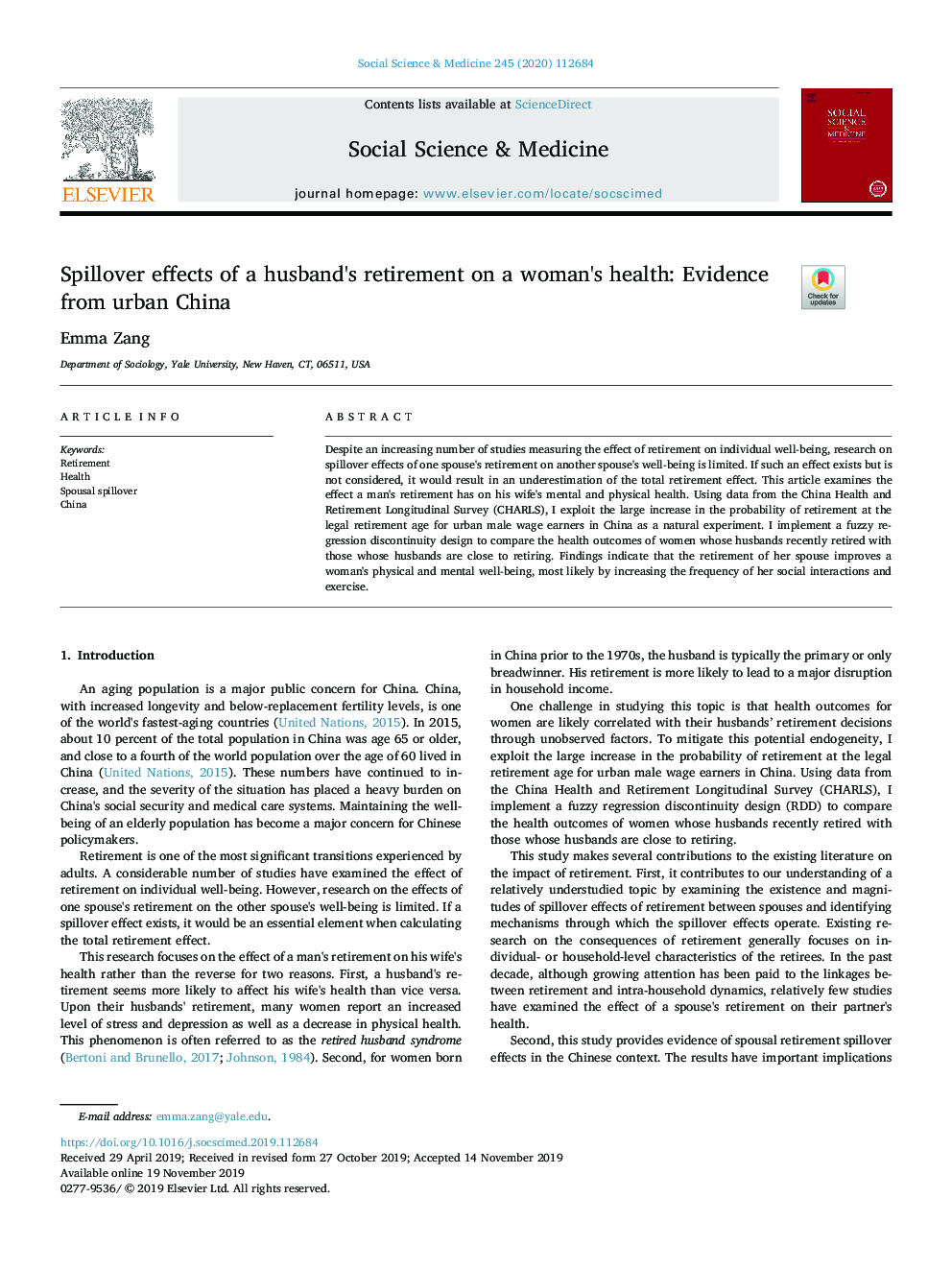| Article ID | Journal | Published Year | Pages | File Type |
|---|---|---|---|---|
| 13458887 | Social Science & Medicine | 2020 | 10 Pages |
Abstract
Despite an increasing number of studies measuring the effect of retirement on individual well-being, research on spillover effects of one spouse's retirement on another spouse's well-being is limited. If such an effect exists but is not considered, it would result in an underestimation of the total retirement effect. This article examines the effect a man's retirement has on his wife's mental and physical health. Using data from the China Health and Retirement Longitudinal Survey (CHARLS), I exploit the large increase in the probability of retirement at the legal retirement age for urban male wage earners in China as a natural experiment. I implement a fuzzy regression discontinuity design to compare the health outcomes of women whose husbands recently retired with those whose husbands are close to retiring. Findings indicate that the retirement of her spouse improves a woman's physical and mental well-being, most likely by increasing the frequency of her social interactions and exercise.
Keywords
Related Topics
Health Sciences
Medicine and Dentistry
Public Health and Health Policy
Authors
Emma Zang,
